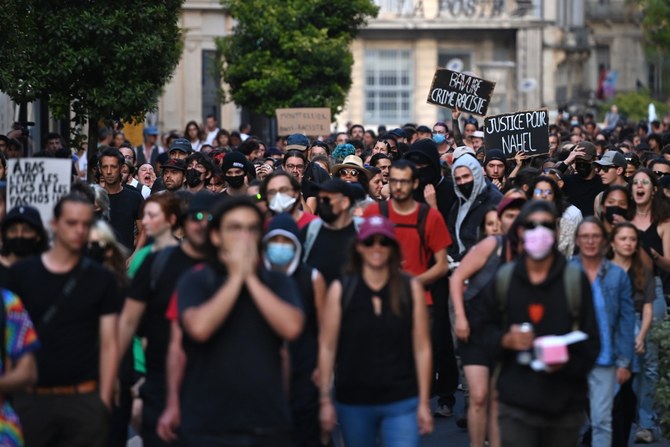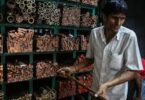Khaled Abou Zahr
France is in a state of turmoil, experiencing a deep division. Amid the gravity of the situation, two perspectives emerge to interpret these events. The first is that of the pessimists. Among them, two distinct groups can be identified. The first group believes that the youth taking to the streets have been alienated from their French identity, fueling their revolt against a nation they feel they can never fully integrate into. The second group of pessimists argues that the youth, who are predominantly Muslim and of Arab and African heritage, refuse to embrace France and are looking to destroy the country and its history.
I believe in the optimistic perspective, which asserts that France has the capacity to adapt and reconcile with all its citizens. Let us delve into this realm of optimism. France will surmount these challenges, emerging even stronger than before. It will find a way to transform this nightmarish scenario into one of empowerment. The country will recognize the untapped potential within its youth, who, with their dual cultural backgrounds, can contribute to the growth and prosperity of both France and its global role and mission.
Indeed, these young individuals are unequivocally French. They are not migrants; they belong to the third or even fourth generation of French citizens. Their ancestral homelands hold little significance for them; it is France that defines their identity. Therefore, it is unjust to tell these young individuals to “go back to their country” if they express discontent with France. France is their country; there is no disputing that fact.
While some voices on the left decry oppression and a structurally racist and violent state, history reveals that Italians, Spanish, Portuguese, Polish and later Chinese and Vietnamese migrants faced prejudice when they settled in France but went on to become integral parts of the nation. Furthermore, even during the Second World War, when the Jewish community faced betrayal by its own state in the most horrific and violent way, it remained attached to France, standing steadfast as the occupation and oppression was lifted and ultimately giving back to the country even though it had taken everything.
The truth is that, for migrants, through generations anywhere in the world, the journey is arduous. It requires relentless effort, hard work and perseverance for a community to carve out its place in society. It necessitates sacrifice and demands solidarity. Consequently, the reality remains that individuals can either strive to secure their place or adopt a victim mentality and choose voluntary isolation. I chose the optimist way of adding value and being an integral part of France. Nothing, not even Islam – as some claim – stands in the way of this opportunity.
Does racism exist in France? Undoubtedly. Is there preferential treatment for the native French population? Certainly. Yet, in no way, shape or form is this a state of institutionalized racism. Racism exists everywhere. It is true that having a purely “Gallic” name may confer certain advantages in the job market. One might even argue that preferential treatment can extend among individuals from the same French region. The “business” history of Paris reveals this and shows how solidarity among children of the same region developed businesses and interests. The Bretons, the Alsatians and the Aveyronnais each built up solidarity within their community while making Paris and France shine. In reality, a confluence of factors has contributed to the current situation of the French of Arab or African heritage, including the state’s negligence, but mostly political manipulation and bribery. Negligence has led, even prior to the eruption of these latest tensions, to areas where the police do not intervene, fearing being attacked if they were to enter. It is easy to blame the police, but one must consider the risks they face in such volatile areas. Heightened tensions and frequent acts of violence only amplify the potential for terrible mistakes. Unfortunately, in the present circumstances, the police force is the scapegoat for all the negligence and incompetence of the politicians and leaders of local communities.
The Muslim community has been spoken for by thugs, submissive and religious leaders, successful entertainers and sportsmen. Yes, I am intentionally caricatural. Each one of these existing stereotypes has been used by all political movements. How come no successful lawyers, bankers or entrepreneurs have a voice within the community, as is the case with other groups? In reality, divisions among French Muslims, as well as Arabs and Africans, are deeper than those with the rest of society. This needs to change now. And so, if we focus on the political views of the community, we notice they have predominantly supported left-wing ideologies, much like how Black Americans often vote for Democrats. The left has skillfully crafted a narrative that portrays conservative politics as inherently racist. Consequently, French Muslims or individuals of African or Arab heritage who align with conservative views or even reject the victim narrative are unjustly labeled as sellouts and traitors to their own community.
For example, in the first round of voting in last year’s presidential election, about 70 percent of French Muslims voted for the leftist candidate, Jean-Luc Melenchon. Historically, the left has been generous in providing support to these communities through housing, subsidies and more. Some €10 billion ($10.8 billion) per year has been allocated to these areas. Consequently, the community is often confined to the role of the victim. Once again, I do not deny the presence of injustice. However, there are more opportunities than injustices. This is why the time has come for France to reassess its system of subsidies. It is also worth considering how Italian, Spanish, Chinese, Polish and Jewish migrants were subjected to similar prejudices, yet they persevered and fought to secure their rightful place within society and give back to the country. This is precisely what these communities must strive for.
It is now imperative for French Muslims and individuals of Arab and African heritage to disassociate themselves from the left, which has failed to unlock their true potential, instead providing only morsels of what they are truly capable of achieving. We are not victims. We have the power to contribute to our country, to build for it. The time is now.







